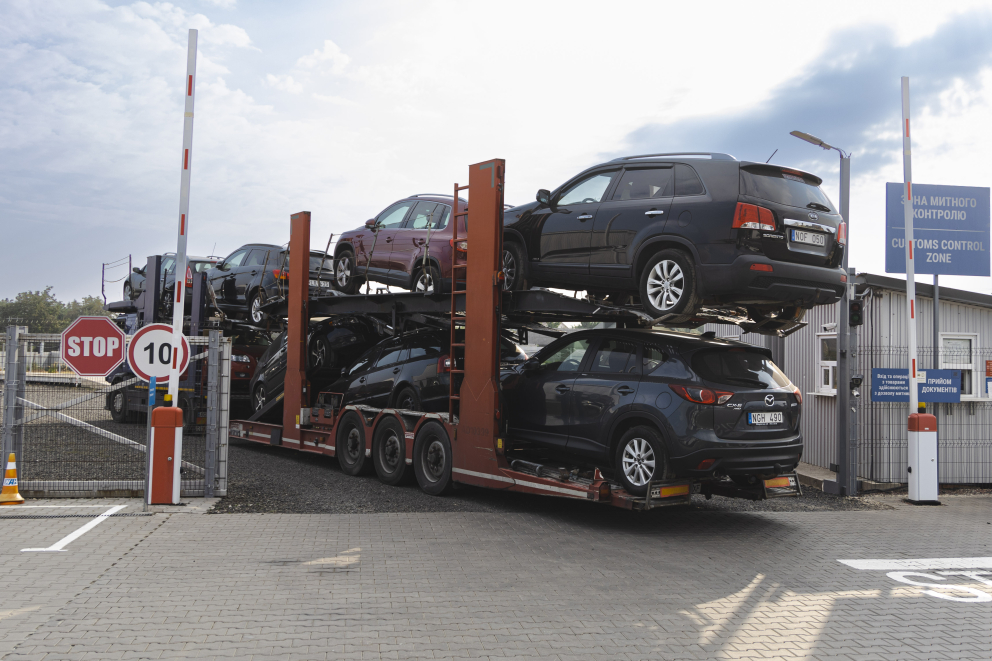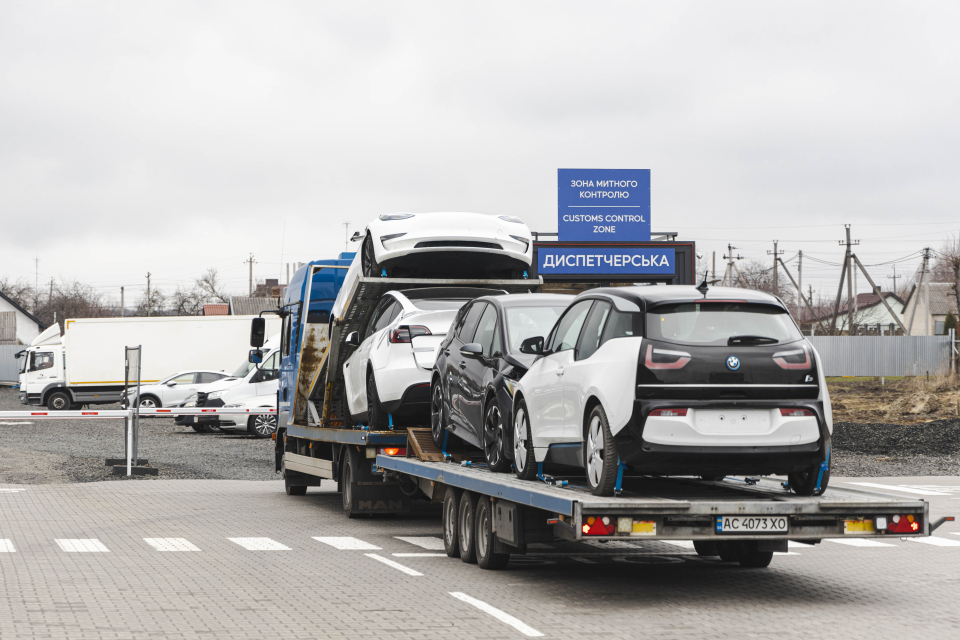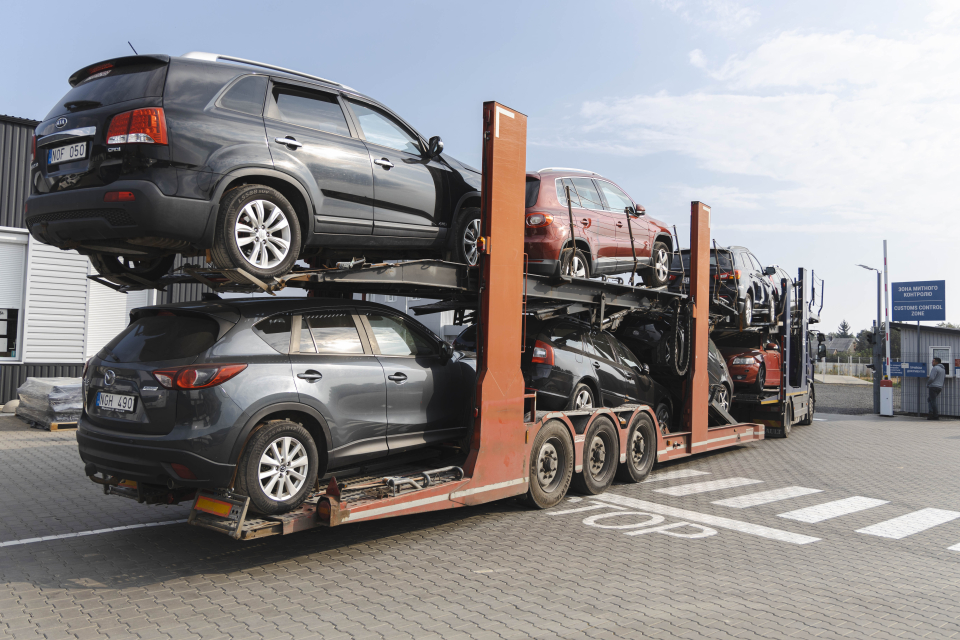Car customs clearance 2025
Major changes in car import and customs clearance in 2025
Ukraine continues to reform customs regulations aimed at optimizing the processes of importing cars from abroad. There is already a significant simplification of procedures, as well as a reduction in the financial burden for vehicle owners thanks to international agreements. Let's consider the key changes that will be in effect in 2025.
New duty rates on cars from EU countries
In accordance with agreements with the European Union, import duty rates on vehicles from the EU continue to decrease. For certain groups of passenger cars, they have already been abolished, and for others they are at minimum rates. The main rates for 2025 are:
- New gasoline cars:Engine capacity up to 1000 cm³ – 0%1000–1500 cm³ – 0.9%Over 1500 cm³ – 0%
- Engine capacity up to 1000 cm³ – 0%
- 1000–1500 cm³ – 0.9%
- Over 1500 cm³ – 0%
- New diesel cars: Up to 2500 cm³ – 0.9% Over 2500 cm³ – 0%
- Up to 2500 cm³ – 0.9%
- Over 2500 cm³ – 0%
- Used cars (all engine types) – 0.9%
- Other categories:Buses – 0%Trucks – 0%Tractors, trailers and special equipment – 0%
- Buses – 0%
- Trucks – 0%
- Tractors, trailers and special equipment – 0%
These conditions only apply to vehicles manufactured in the EU. To benefit from the benefits, you must provide a document confirming the country of origin of the vehicle.
Preferential rates for other countries
Preferential import duty also applies to transport from other countries with which Ukraine has relevant agreements. The main rates are listed below:
- EFTA countries (Iceland, Liechtenstein, Norway, Switzerland): Passenger cars – 0% or 1.8% (depending on category) Other modes of transport – 0%
- Passenger cars – 0% or 1.8% (depending on the category)
- Other modes of transport – 0%
- Canada: All vehicles – 0%
- All vehicles – 0%
- Israel: Passenger cars – 1–2%Buses – 2–4%Special equipment – 0–2%
- Passenger cars – 1–2%
- Buses – 2–4%
- Special equipment – 0–2%
- Macedonia: Passenger cars – 0%, 5% or 10% Other categories – 0%
- Passenger cars – 0%, 5% or 10%
- Other categories – 0%
- United Kingdom: Cars – 0% or 1.8% Other modes of transport – 0%
- Passenger cars – 0% or 1.8%
- Other modes of transport – 0%
To clarify the procedure for obtaining a document of origin of a vehicle, please call 0800-20-91-23.
How excise tax changes with the age of the car
One of the key factors that affects the total cost of customs clearance is excise duty. This tax depends on the age of the car, its type and engine capacity. With the advent of the new year, every vehicle on the secondary market becomes a year older, which automatically increases the amount of excise duty.
Practical example: A passenger car with a 1500 cm³ gasoline engine, which was 7 years old in 2024, required the payment of excise duty in the amount of 525 euros. In 2025, its age increased to 8 years, and now the amount of excise duty will be 600 euros. Accordingly, the amount of VAT, which is charged on the amount that includes the estimated cost of the car, customs duty and excise duty, also increases.
Customs clearance through "Diya"
One of the promising innovations is the possibility of remote customs clearance of vehicles through the "Diya" application. Bill No. 10380, submitted at the end of 2024, proposes the creation of a special database for determining the customs value of cars.
Main aspects:
- Remote customs clearance will be available to both individuals and legal entities.
- The procedure involves evaluating the car using a single database.
- If you disagree with the assessment results, you can choose the standard customs clearance method.
- This mechanism is temporary and will be in effect until Ukraine joins the EU.
Although there is still no single customs value base that would allow us to accurately assess the benefits of this mechanism, the new approach can significantly speed up the car clearance process.
Will there be customs clearance benefits in 2025?
A number of bills have already been registered in the Ukrainian parliament, offering preferential conditions for certain categories of citizens, such as participants in hostilities or persons who lost their cars in the occupied territories.
Despite the significant number of initiatives, most of them did not even reach the first reading. During martial law, the state is unlikely to allow tax cuts, which could reduce budget revenues.
These changes and initiatives demonstrate the gradual improvement of Ukraine's customs legislation, although some solutions still need time to be implemented. Stay tuned for updates to optimize customs clearance costs.


